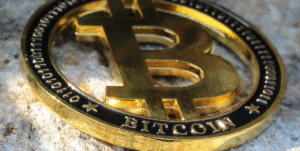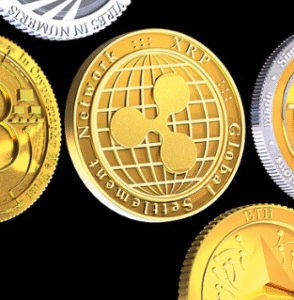$USDRUB $BCSI $BTC
#Russia #BRICS #Putin #DollarDominance #Sanctions #DeDollarization #Crypto #Economy #FinancialIndependence #Geopolitics #InternationalTrade #DigitalCurrency
Russian President Vladimir Putin has been vocal about his ambition to reduce American dominance in the international financial system, specifically targeting the pervasive influence of the “weaponised” dollar. This comes amid a broader geopolitical and economic conflict between Russia and the West, especially after the imposition of sanctions in response to the invasion of Ukraine. The sanctions heavily constrained Russia’s ability to trade internationally using the US dollar, prompting the Kremlin to seek avenues for reducing reliance on Western financial systems. Putin’s strategy underlines the importance of establishing alternative payment mechanisms and platforms—whether through digital currencies, alliances like the BRICS bloc, or bilateral deals with countries like China and India.
However, Putin’s efforts to promote alternatives have not seen widespread enthusiasm even among Russia’s BRICS partners (Brazil, Russia, India, China, and South Africa), which were initially viewed as a key counterbalance to US dominance. Despite their collective goal of finding alternatives to the US-dominated financial system, differing interests, economic concerns, and external pressures have hampered the bloc’s cohesion. For example, China and India—major BRICS economies—remain cautious about fully adopting any alternative financial mechanisms not aligned with their broader strategic goals. There remains a significant gap between rhetoric and implementation, leaving much of the world still reliant on the dollar for trade and reserves.
A significant part of the Russian strategy is the exploration of cryptocurrencies and digital currencies as possible tools in this effort to decouple from the dollar. The rise in international crypto trading volumes, particularly in Russia following the sanctions, provides a potential avenue. In Russia, Bitcoin ($BTC) and other digital assets have been increasingly adopted as both speculative and functional tools in response to external financial restrictions. Although utilizing such decentralized options offers a way to subvert Western-imposed restrictions, it is a far cry from challenging the global supremacy of the US dollar, given the limited adoption of crypto across many BRICS nations.
Ultimately, international business and trade continue to operate largely within the framework of the dollar-dominated system, leaving Russia’s alternatives still in nascent stages. While the idea of de-dollarization is appealing to certain members of the global economic community, the multi-layered complexities—ranging from geopolitical risk to the technicalities of creating new financial systems—are significant. Until BRICS economies, especially key players like China and India, fully commit to de-dollarization strategies, the dominance of the dollar seems secure in the near term. Russia continues to look for support, but major shifts in global financial infrastructure remain elusive.







Comments are closed.